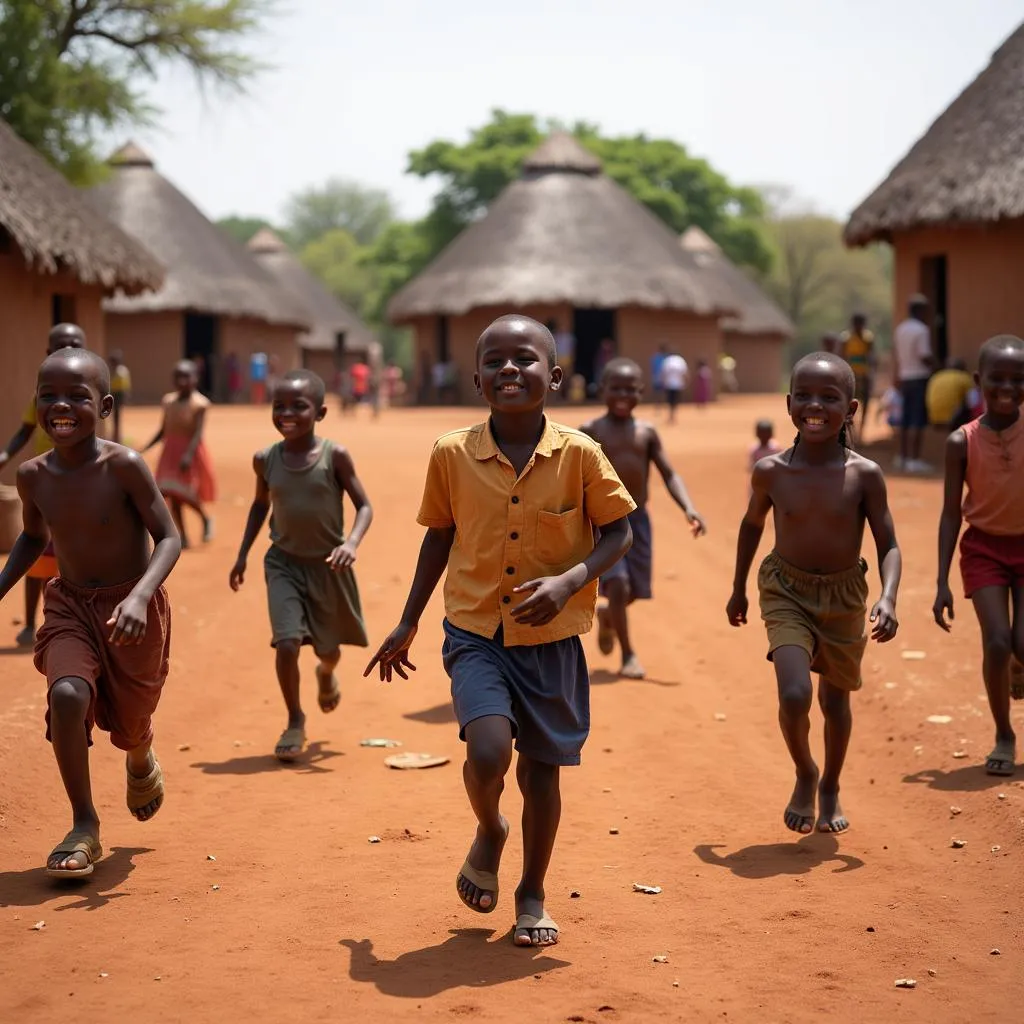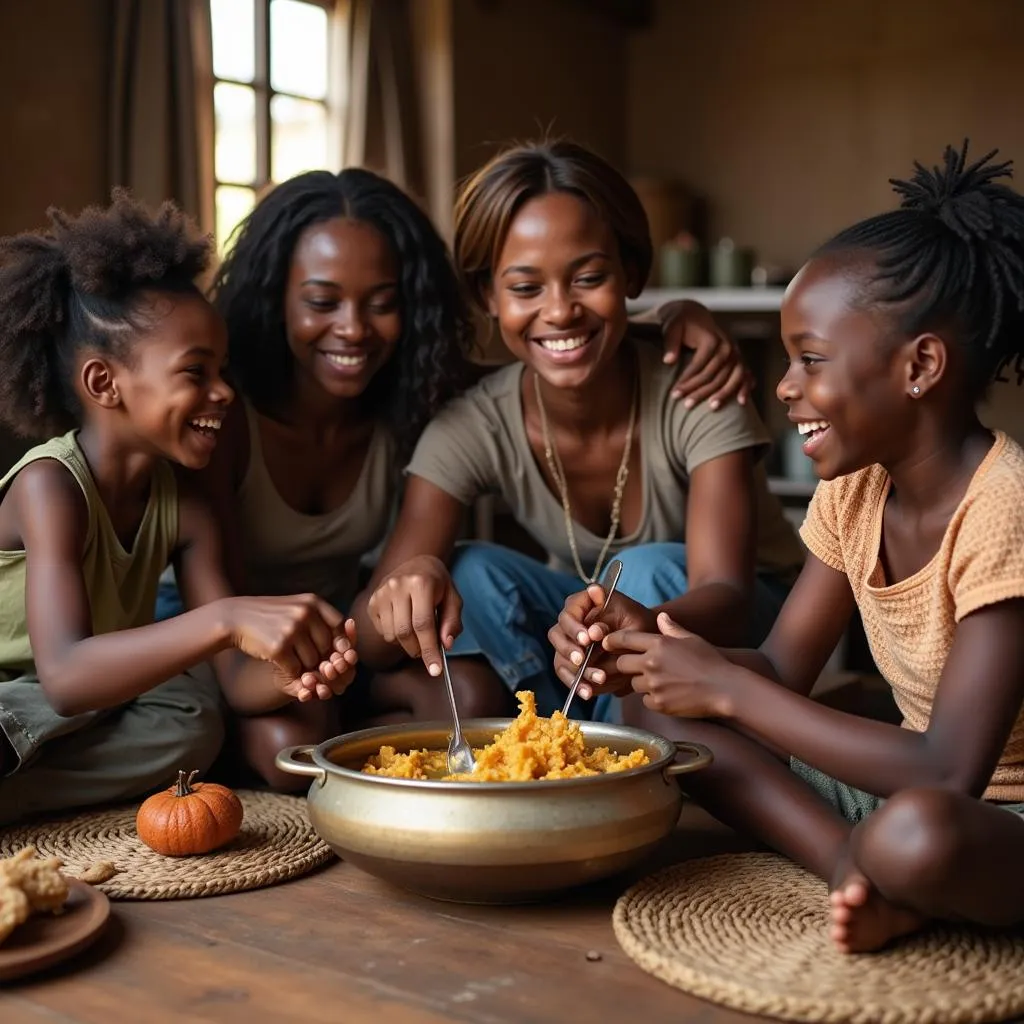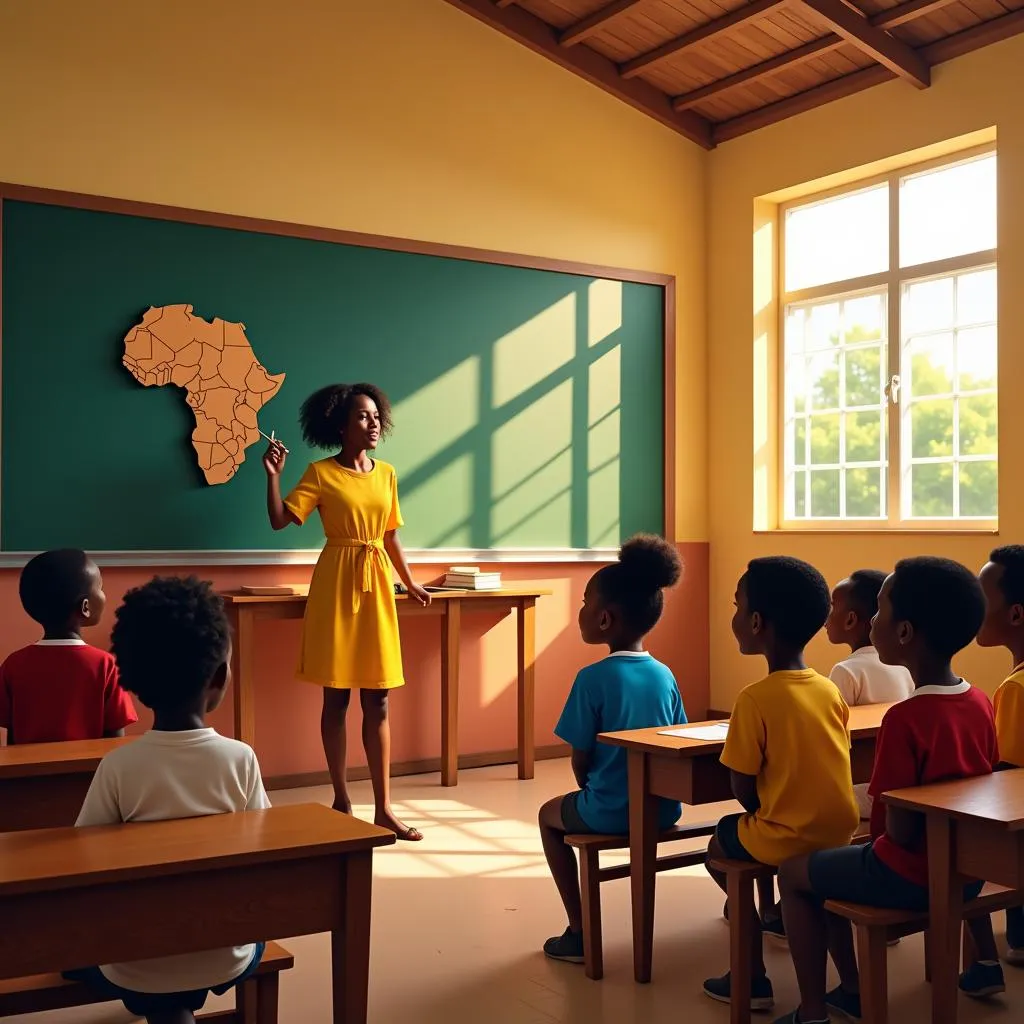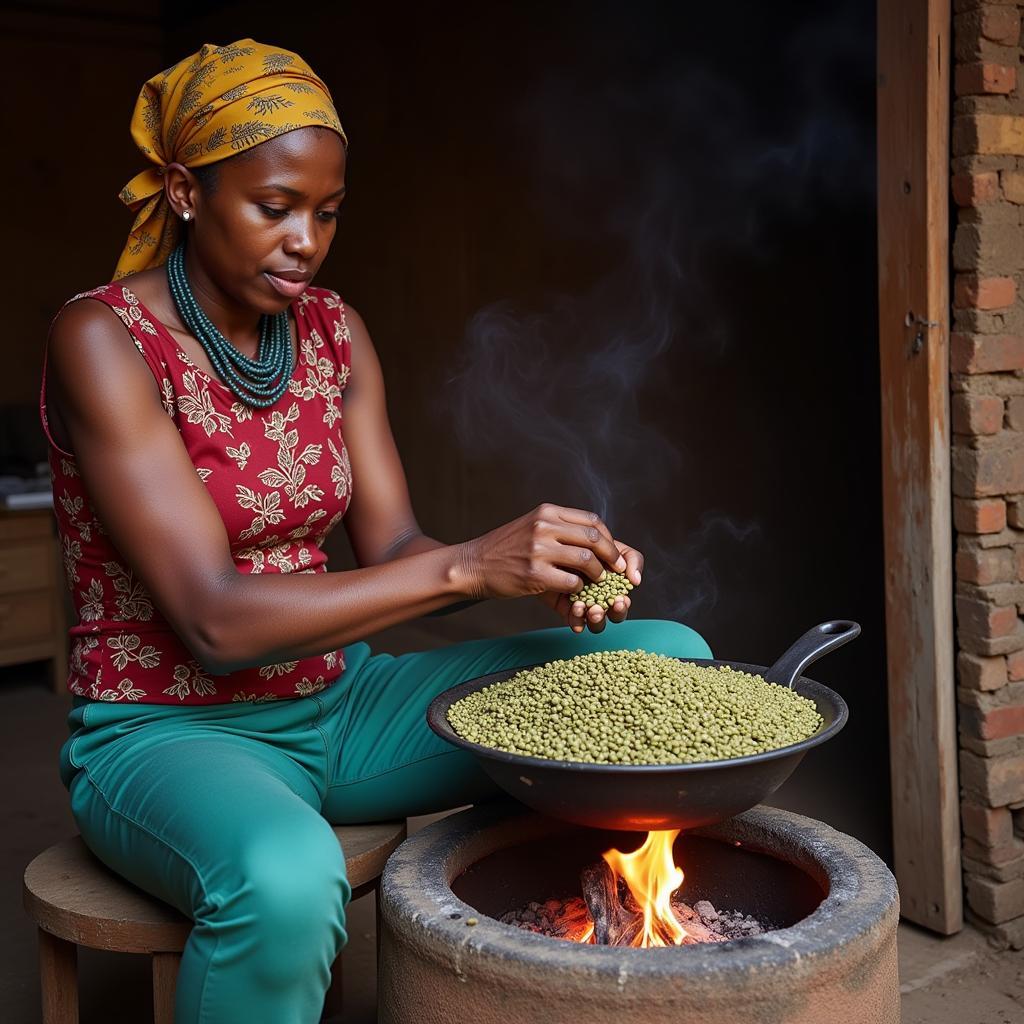A Day in the Life of an African Child KS1: Exploring Diverse Cultures
A Day In The Life Of An African Child Ks1 can be as varied as the vast continent itself. From bustling cities to serene villages, the lives of African children are rich in culture, tradition, and daily experiences that shape their unique perspectives.
Diverse Lifestyles and Landscapes
It’s important to remember that Africa is not a single country, but a continent of 54 unique nations, each with its own traditions, languages, and ways of life. Some children might live in bustling cities like Lagos, Nairobi, or Cairo, where the sounds of traffic and the sights of towering buildings fill their days. Others might reside in peaceful rural villages surrounded by sprawling savannas, lush forests, or arid deserts.
 African village children playing
African village children playing
A Typical Day: From Sunrise to Sunset
While daily routines vary greatly, let’s imagine a day in the life of a child living in a rural village in East Africa:
- Morning: The day often begins early, with the sun rising over the horizon. Children help their families with chores like fetching water from a well or herding livestock before heading off to school.
- School: Education is highly valued, and children walk long distances to attend. Classrooms may be basic, but the children are eager to learn and their teachers are dedicated. Subjects like maths, English, science, and their local language are common.
- Afternoon: After school, children often help with more chores, play games with friends, or spend time with their families. Traditional games like Mancala, a strategy game played with seeds, are popular.
- Evening: As the sun sets, families gather for a meal, often cooked over an open fire. Storytelling is a cherished tradition, with elders sharing folktales and wisdom passed down through generations.
 African family eating dinner together
African family eating dinner together
The Importance of Family and Community
Family and community are central to African culture. Children are taught to respect their elders and value their community. Extended family often live close by, creating a strong support network.
Food, Music, and Celebrations
African cuisine is as diverse as its people. Staple foods include maize, rice, cassava, and plantains, often accompanied by stews made with vegetables, meat, or fish. Music and dance play a significant role in celebrations and everyday life. Rhythmic drumming and vibrant melodies are integral to their cultural expression.
Challenges and Opportunities
While Africa is a continent of immense beauty and cultural richness, children also face challenges such as poverty, limited access to healthcare, and water scarcity. However, they are resilient and resourceful, and their stories are filled with hope and the promise of a brighter future.
Exploring Africa in the Classroom
Learning about a day in the life of an African child provides a valuable opportunity for KS1 students to:
- Develop global awareness: Understanding the lives of children from different cultures fosters empathy and broadens perspectives.
- Appreciate diversity: Recognizing the vast differences within Africa challenges stereotypes and promotes cultural appreciation.
- Connect with real-world issues: Learning about the challenges faced by some African children raises awareness of global issues.
 African children in classroom learning
African children in classroom learning
Conclusion
Understanding a day in the life of an African child KS1 is about embracing the continent’s diversity and recognizing the richness of its cultures. It’s about appreciating the challenges and celebrating the resilience of its people. By learning about their stories, we can foster greater understanding and empathy for our global community.
FAQs:
- What language do African children speak? Africa has over 2,000 languages! Children often grow up speaking their local language and learn English, French, or Portuguese in school.
- What do African children play? Popular games include Mancala, skipping rope, and football (soccer).
- What can I do to help children in Africa? Supporting charities that work on education, healthcare, and clean water initiatives can make a difference.
Need Assistance?
For any further information, please feel free to reach out to us!
Phone: +255768904061
Email: kaka.mag@gmail.com
Address: Mbarali DC Mawindi, Kangaga, Tanzania
We have a dedicated customer support team available 24/7 to assist you.

